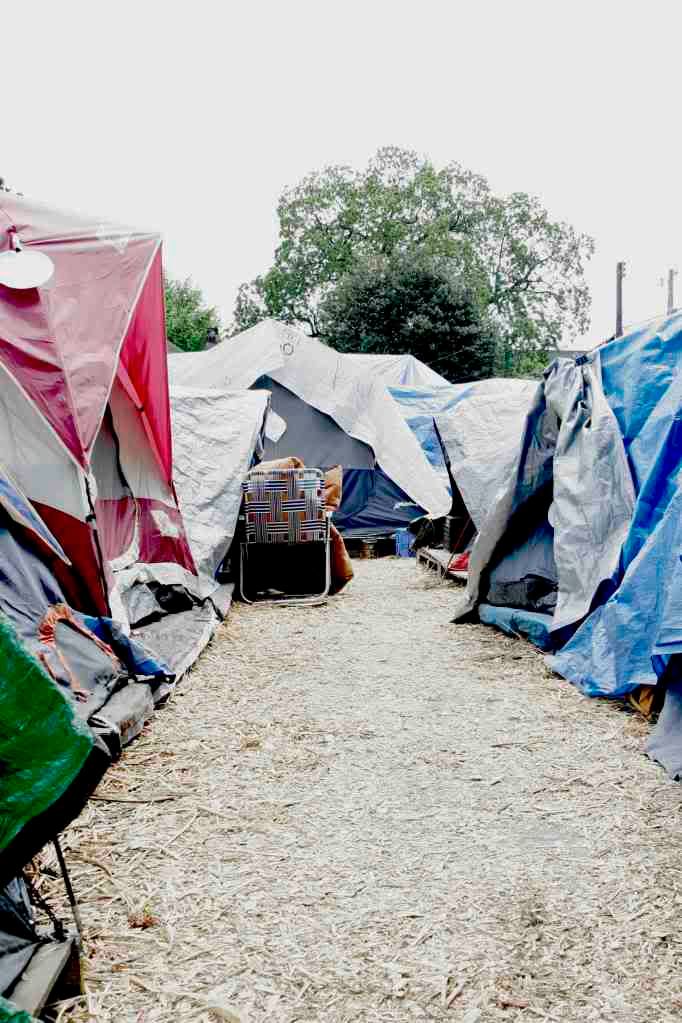by CLAIRE BURNS
Supporters of Tent City 3 moving to the University of Washington campus next year hope to raise awareness about Seattle homelessness and affect city wide social change, but not all students are on board.
“People go to a University to work hard and try to improve themselves,” said UW student Andy Barr. “The occupants of tent city are content to be freeloaders, many of whom make no efforts to get a job or improve their status.”
Now that the resolution to host Tent City 3 has passed in the Graduate and Professional Student Senate, Associated Students of the University of Washington Senate and the Faculty Senate, the official decision lies in the hands of President Emmert.
With all of the recent support rallied from student advocates, a Facebook group opposing the encampment’s move to campus has come forward to show Emmert that UW students are far from united, despite the ASUW Senate endorsement.
Hunter Marshall, a junior in the Health Services class that first proposed moving the tent city to campus, said that he believes that students are so divided because of misconceptions about homelessness.
“What I don’t understand is why homeless people are seen as a homogenous group,” Marshall said, speaking of the stereotypes he believes many students maintain.
Shortly after the ASUW approved the resolution, Barr created the group on Facebook that opposed Tent City 3 on campus in hopes of swaying Emmert’s final decision.
Barr said that his objection to the homeless encampment on campus is more about an inconsistency in values with many members of the tent city lacking work ethic.
After speaking with Tent City 3 residents, Marshall said he found the atmosphere was actually more conducive to encourage homeless people to find jobs.
“When you are living that intimately with 100 other people, you find connections and hear about job opportunities from others in tent city,” Marshall said. “The majority don’t want to live in tent city forever. When you stop and ask why they are there, it is because of abrupt unemployment or health emergencies…many are veterans.”
He said students should look to all of the benefits from Tent City 3’s month long stay at Seattle University in 2005.
Data accumulated after the tent city’s stay at Seattle University found that 17 different classes visited the camp and nursing and law students organized and operated a health desk and legal clinic on site.
Marshall and Nancy Amidei, a former faculty member of the School of Social Work, said that the same types of opportunities would be available to UW students.
“Part of the UW’s stated mission is ‘to discover timely solutions to the world’s most complex problems and enrich the lives of people throughout our community,’” Amidei said. “It is a public acknowledgment of our responsibility as a public university to put what we know to the service of the broader community.”
She said there are many opportunities to incorporate tent city into faculty members’ curriculum.
“Imagine, for example, if faculty and students in Architecture & Urban Planning were to team with tent city’s unemployed construction workers, draftsmen and others, to develop low-cost, green housing units,” she said. “What if our college of Education could offer ideas for the retraining of out-of-work homeless adults?”
Alec Mighami disagreed, the vice president of administration for the Interfraternity Council said, “This sounds like a learning opportunity being forced upon students who pay exorbitant sums to attend a top tier university.”
But Eileen Bartell, a UW alum and parent of a current student, said that she would tell parents of prospective UW students to encourage their children to attend another 4-year university without a tent city.
“My husband and I pay thousands of dollars for our daughter to attend UW,” she said. “Do the decision makers care what we think about putting a tent city at UW?”
Despite concerns of some parents and students, Marshall said that in addition to overturning negative assumptions about homeless people, hosting tent city next year will provide numerous educational opportunities to students. He spoke with several faculty members who said if tent city passed, they would incorporate the real life application into their curriculum.
Marshall said that the two possible locations discussed so far are the old archery field or the parking lot by Condon Hall. He said both locations are rarely visited or even passed by students.
Amidei said “Those who do not wish to interact with tent city residents would not have to. Interaction is entirely voluntary.”
The use of tuition dollars was an issue for freshman Curtis Howell as well.
“I pay money to attend a university not a soup kitchen,” he said.
Marshall said that regardless of Emmert’s decision, he hopes to set up an open dialogue for students, staff, and community members.
“Regardless of what happens homelessness is a very important issue that needs to be addressed.”
This week members from the Health Services class formally asked President Emmert for to create committee that would make logistical decisions about tent city. They requested a decision by the end of the quarter.
Subscribe to:
Post Comments (Atom)

No comments:
Post a Comment